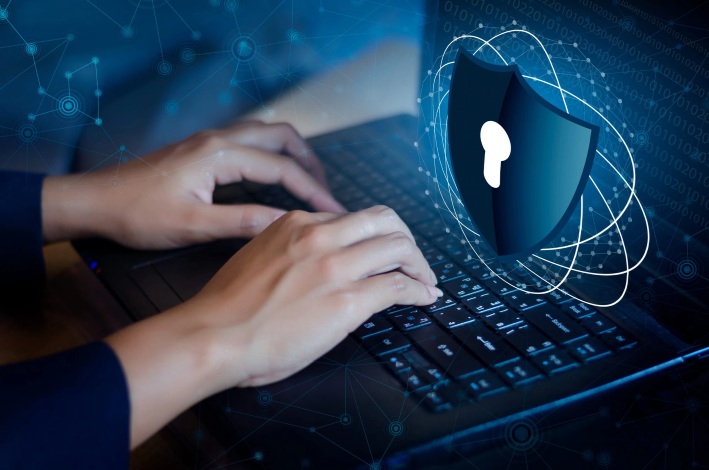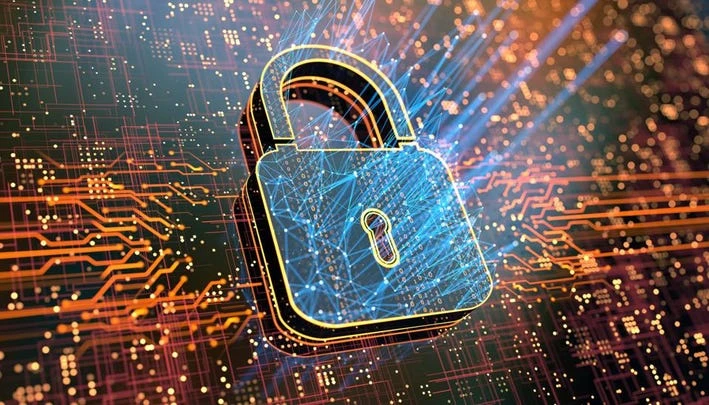 |
| Protecting personal data rights is an urgent requirement, especially in the context of complex developments in cybercrime. (Source: nhandan.vn) |
Personal data leakage: an urgent issue
A representative of Viettel Cyber Security Company informed that data leakage, security vulnerabilities and ransomware attacks have increased rapidly in recent times. In the first quarter of 2024 alone, the number of ransomware attacks increased by 70% compared to the same period last year. Data from many organizations was stolen, leading to leaks and disclosure of sensitive and important data to the outside. Encrypting an organization's virtual infrastructure also leads to disruptions in the unit's production and business activities. Service interruptions or attacks also cause partners and customers to lose confidence, and to doubt and underestimate the ability to provide products and services of the enterprise.
Major Dao Duc Trieu, Head of Research, Policy and Legal Consulting (National Cyber Security Association) commented that awareness of personal data protection is still unbalanced. Many people are willing to trade private information and personal information for technological convenience. Therefore, to manage cyberspace, countries consider protecting data and personal information as an important task.
Solution
At the recent workshop on “Building a personal data protection policy” organized by the Ministry of Public Security, an issue of concern was how organizations and businesses protect personal data.
Do Ngoc Thien, Chief Technology Officer of Kalapa Data Technology and Machine Learning Company, said that this unit coordinates with banks and credit institutions to detect and prevent fraud through biometric technology solutions (eKYC). Kalapa's eKYC technology uses big data analysis to monitor and analyze millions of transactions in real time, detecting fraud patterns; applying artificial intelligence (AI) and machine learning to detect complex fraud patterns that are difficult for humans to recognize. At the same time, biometric methods such as fingerprints, facial recognition, voice recognition are used to authenticate users. Another solution developed by Vietnam Data Security Joint Stock Company (VNDS) is the DataTrust.
 |
| The right to protect personal data always goes hand in hand with the stable development of society. (Source: nhandan.vn) |
Deputy Director of the Department of Digital Economy (Ministry of Information and Communications) Tran Quang Hung said that the Ministry will focus on 4 groups of solutions to manage user authentication and review information on cyberspace. The management agency requires authentication of social network user accounts via phone numbers to limit cybercrime, facilitate authorities in monitoring, detecting and handling violations, and at the same time raise awareness and responsibility of users. Domestic and foreign organizations and individuals providing information on Vietnam's cyberspace must comply with and remove illegal content when requested. Supplementing regulations requiring social networks to temporarily or permanently block accounts, community pages, community groups, and content channels that frequently or seriously violate national security.
Emphasizing that personal data protection is becoming urgent, Lieutenant General Nguyen Minh Chinh, Director of the Department of Cyber Security and High-Tech Crime Prevention (Ministry of Public Security), said that the Ministry of Public Security has oriented the development of the Law on Personal Data Protection of Vietnam, improving the capacity to protect personal data for domestic organizations and individuals to reach international and regional levels; promoting the use of personal data in accordance with the law to serve socio-economic development. The draft Law stipulates 11 rights and 5 obligations of data subjects. The draft also stipulates conditions for personal data protection for organizations providing personal data processing services; requesting an assessment of the impact of personal data processing and transferring personal data abroad as a legal commitment to personal data processing activities.
In reality, protecting personal data is not only the responsibility of individuals, but also the responsibility of authorities, businesses, the State and society. Protecting personal data is also protecting property, protecting the privacy, freedom, honor and reputation of each person and the community, and contributing to building a civilized, safe and developed society./.